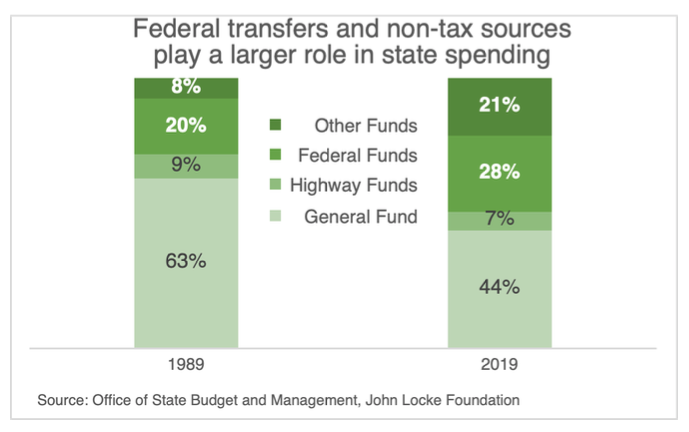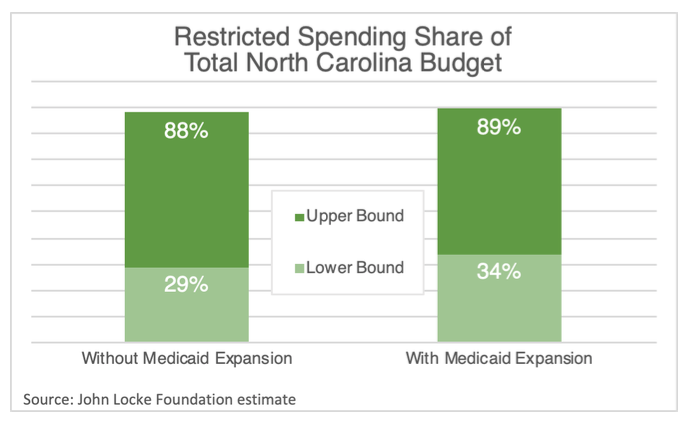This week, JLF’s Joe Coletti published a research brief on the dwindling ability of government decision-makers to choose the direction in which their state will go. Coletti writes:
Governors and state legislators have given away much of their ability to make policy over the last 30 years. Even as state government has grown in size and scope, it has become increasingly dependent on sources of revenue outside of its direct control.
For instance, states are constantly receiving federal funds, and that money has conditions. Those conditions can be pretty restrictive at times. Coletti quotes from Reihan Salam, president of the Manhattan Institute:
“Every state, regardless of political coloration, spends far more on Medicaid, public education, and public-employee benefits than it did a generation ago, in no small part because of the availability of federal matching funds…
By promising to match state spending, federal grant-in-aid programs lower the effective cost of delivering services that Congress deems desirable, usually with strings attached that limit the autonomy of state officials.” (Emphasis added.)
The amount of these restrictive federal funds that the state receives has gone up over time. Coletti writes:

In 1989, federal funds added one dollar for every three in North Carolina General Fund appropriations. By 2019, federal funds added two dollars for every three dollars of appropriations. Other unappropriated funds, from tuition, the lottery, unemployment insurance, and other sources have grown from less than one-tenth of total spending to more than one-fifth. (See image.)
Coletti, taking a cue from the Tax Policy Center, measured how much of North Carolina’s state spending is on autopilot due to “constitutional and statutory formulas, federal grant requirements, and court rulings.” Coletti found between 29 percent and 88 percent of North Carolina’s spending is restricted. Coletti also noted, under Medicaid expansion, those numbers would rise to 34 percent and 89.5 percent. (See image).

Coletti concludes:
The fight over Medicaid expansion is not just about this year’s budget. It is a fight for the ability of future governors and state legislators to set the right course for North Carolina regardless of who is in the White House or Congress.
Read the full brief here. Learn more about federal funding here.


